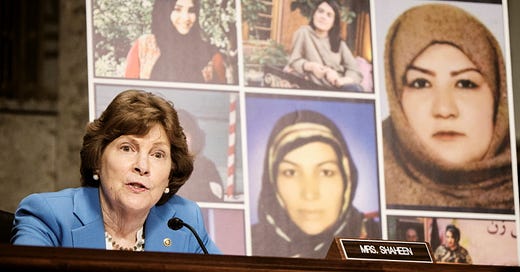Welcome to “What's Up Afghanistan?” by me, Arash Azizzada. Thank you for reading! My goal here is to try to make the news from Afghanistan digestible and understandable. I will try my best to center Afghans and their voices. This edition of the newsletter is free but to keep this little venture going, I am asking folks to subscribe! For the cost of one oat milk latte per month, you will get multiple newsletters a month delivered right in your inbox. Check out previous work here.
What you need to know: the latest
The Biden administration has announced its intention to remove its boots-on-the-ground presence from Afghanistan by September of 2021. This unconditional exit should make for an end to the 20-year occupation of Afghanistan by U.S. and NATO-led coalition troops. Other countries will and are likely to follow America’s lead because the US is facilitating much of this effort on a logistical scale. Considering the legacy of some of these country’s actions in Afghanistan, some will not shed any tears. It sparks fears in others. While the framing of it is intended to showcase that the U.S. is exiting this war as a participant, it is unlikely to actually do so and will remain a party to the conflict to some degree. Debate is already in progress about what America’s re-calibration will look like. Some experts are already wondering where a future outpost will be based out of for drone and “short-notice strikes” within the country.
T.J. Kirkpatrick/Pool via REUTERS
What does this mean for the Afghan people? The war sets to continue, possibly pick up pace yet again. Conflict will rage on, despite President Biden’s claim that “American leadership means ending the forever war in Afghanistan.” The Taliban smells victory. There are major questions about what the American exit means in terms of Afghanistan as a nation-state. Will the current Afghan government unite to prevent a Taliban takeover, which is feeling the momentum of its accomplishment of defying a world power and enjoying diplomatic legitimacy on the world stage. Can those opposed to the Taliban — the government, the army, its special forces, militias, warlords, those opposed to Ghani’s rule — stay united to stop the Taliban? Lots of questions; even more uncertainty.
Who is the most vulnerable? Many Afghan women are worried, fearful that their hard-earned gains will be erased. Ethnic and religious minorities are scared about what it would mean if the Taliban were to rule the country yet again, given its very ugly past. Those who worked with the American government, in capacities small and big, are fearful of being left out to dry. Not to mention the youth, the disabled, and the LGBTQ community. The Afghan population is two-thirds under the age of 35. A massive refugee exodus is quite likely, which Iran and Pakistan will undoubtedly feel. So will Europe. A brain drain is already in progress, as members of Afghanistan’s civil society are already fleeing the country.
What does America leave behind? There’s probably much to be said and currently left unsaid about what has transpired over the past 42 years. I write this as an Afghan American, born in Western Europe, who has only seen his homeland once. The plight of the country and its people sets off a wave of complicated emotions as we try to grapple with what we ought to do and what went wrong along the way. Fatima Ayub wrote a blistering and honest look back at what has transpired since 2001.
Afghanistan will remain in crisis for years to come, but the world’s already limited attention will almost certainly shift away completely. U.S. forces will not return to Afghanistan after they withdraw, even if the Taliban capture Kabul and overthrow the current government. The war may be ending in American eyes, but I will remember the names of every official, politician, diplomat, pundit, think tanker, and “expert” who made a living propagating the lie that the war was good, or right, or winnable, or making progress, or turning a corner, or that David Petraeus was a military genius, or that the Afghan government served the interests of its own people. It was a carnival of bad faith, bad choices, bad actors, and death. I will not forget.
This is instructive as we move forward. We could forgive. We cannot forget. And we cannot accept violence as being Afghanistan’s fate.
What to listen to:
As we move to yet another phase of Afghanistan’s tumultuous history, questions arise about which direction we’re moving towards. This might be the end of the chapter for one country but how can the Afghan diaspora and the international community lend a hand to the Afghan people? Listen here to the “Foreign Exchanges” podcast by Derek Davison, which includes guest Mena Ayazi, who is a staunch and unrelenting advocate for Afghanistan, and Kate Kizer of Win Without War, as they try to give answers.
Thank you so much for reading! I welcome feedback & tips! Are there folks I should interview? Do you know of a project I should be highlighting? Just want to say hi? You can reach me at: arash.azizzada at gmail dot com.




